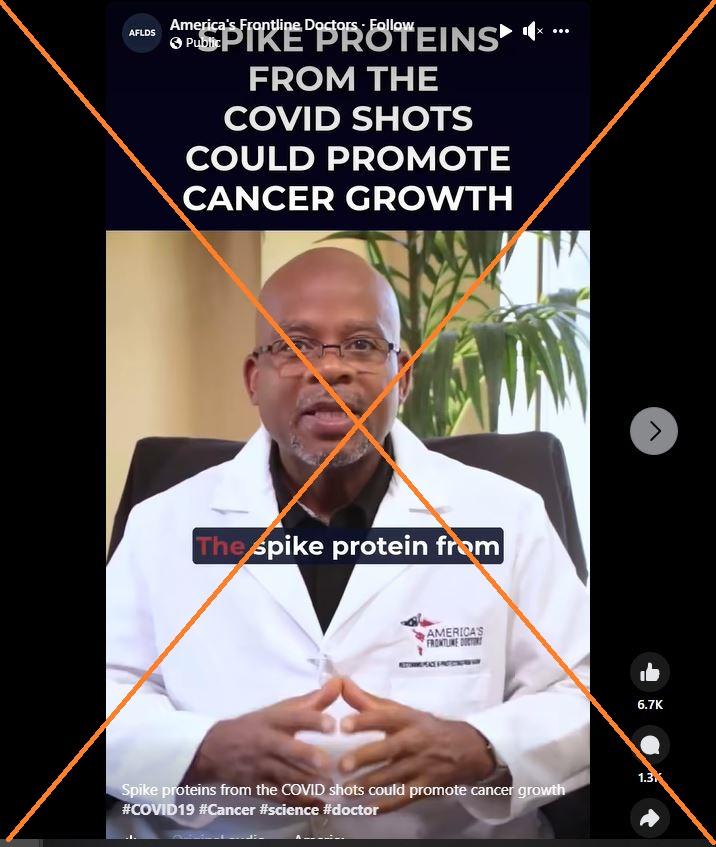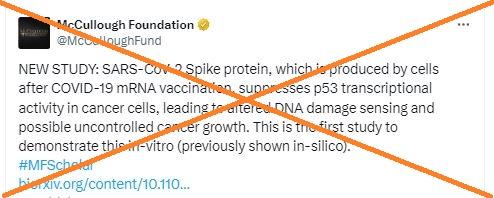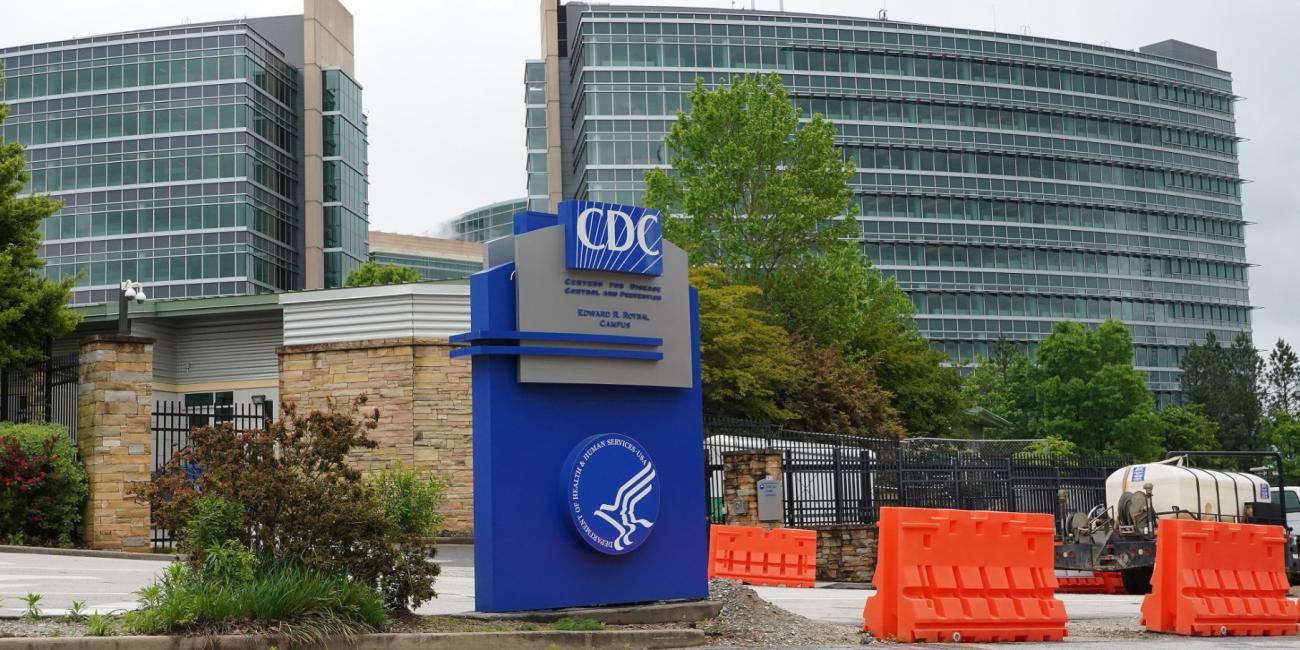
Study does not establish Covid-19 vaccine link to cancer
"Spike protein from the Covid shots could promote cancer growth," says text over a July 1, 2024 Facebook reel from America's Frontline Doctors, a group that has previously promoted Covid-19 misinformation.
Another Facebook post referencing the same study says it concluded "the Covid shots actually cause cancer to grow and survive." Similar claims have circulated on X among prominent vaccine skeptics.


The posts are the latest example of far-reaching misinformation about the shots, which researchers estimate have saved millions of lives worldwide.
The claims reference an April 2024 preprint study that was subsequently published in the cancer journal Oncotarget (archived here and here).
The paper, led by Brown University researchers Shengliang Zhang and Wafik El-Deiry (archived here and here), found the Covid-19 spike protein suppresses the p53 gene and may inhibit the ability to prevent cancer cell growth, notably after chemotherapy. This protein is present in the body after both infection and vaccination.
Instead of injecting weakened or dead forms of the coronavirus to create an immune response, the messenger RNA (mRNA) shots from Pfizer and Moderna deliver instructions to cells on how to build a piece of the virus's spike protein. After creating the protein, cells can then recognize and fight the coronavirus if infected.
However, the study shared online "does not provide proof that Covid-19 vaccines cause cancer," El-Deiry said in a May 8, 2024 post on X (archived here).
Our research does not provide proof that COVID-19 vaccines cause cancer. If you read our publication you will see that we conducted basic science experiments showing that spike protein can have an impact on the function of the major tumor suppressor protein p53 including… https://t.co/ggBjmFopTV
— Wafik S. El-Deiry, MD, PhD, FACP (@weldeiry) May 8, 2024
The researchers say in their study that their findings from in-vitro lab tests cannot be interpreted as a cause of cancer, a disease commonly attributed to multiple genetic and environmental factors.
While the p53 gene can help suppress cancer formation, El-Deiry told AFP he and his co-authors "did not look at a cancer endpoint."
"Cancer is complicated," he said August 14. "You get rid of p53, that doesn't turn into a cancer. Other things happen -- other mutations, other events that occur over time. So that's the area that needs clarification."
El-Deiry said one of the research goals was to help produce vaccines that would not damage the p53 gene and be safer regarding cancer risk.
"Our experiments highlight an issue that should have earlier consideration more widely in vaccine development," the authors wrote.
"This is about testing numerous natural variants as well as synthetic variants of proteins such as spike to maximize anti-viral immunity while minimizing suppression of innate host pathways that respond to invading viruses or their gene products."
AFP has repeatedly debunked claims that the Covid-19 vaccines cause cancer.
"The authorized and approved Covid-19 vaccines are being administered under the most comprehensive and intensive vaccine safety monitoring effort in US history," Nick Spinelli, a spokesperson for the US Centers for Disease Control and Prevention, previously told AFP.
"After more than 676 million doses administered, safety monitoring has not established an association between Covid-19 vaccination and an increased risk for any cancers. There are no data that suggest that Covid-19 vaccines cause cancer, lead to recurrence, or to disease progression."
The American Cancer Society recommends patients stay up-to-date with the latest Covid-19 vaccines (archived here).
AFP has fact-checked other claims about vaccines and the Covid-19 pandemic here.
Copyright © AFP 2017-2026. Any commercial use of this content requires a subscription. Click here to find out more.
Is there content that you would like AFP to fact-check? Get in touch.
Contact us




